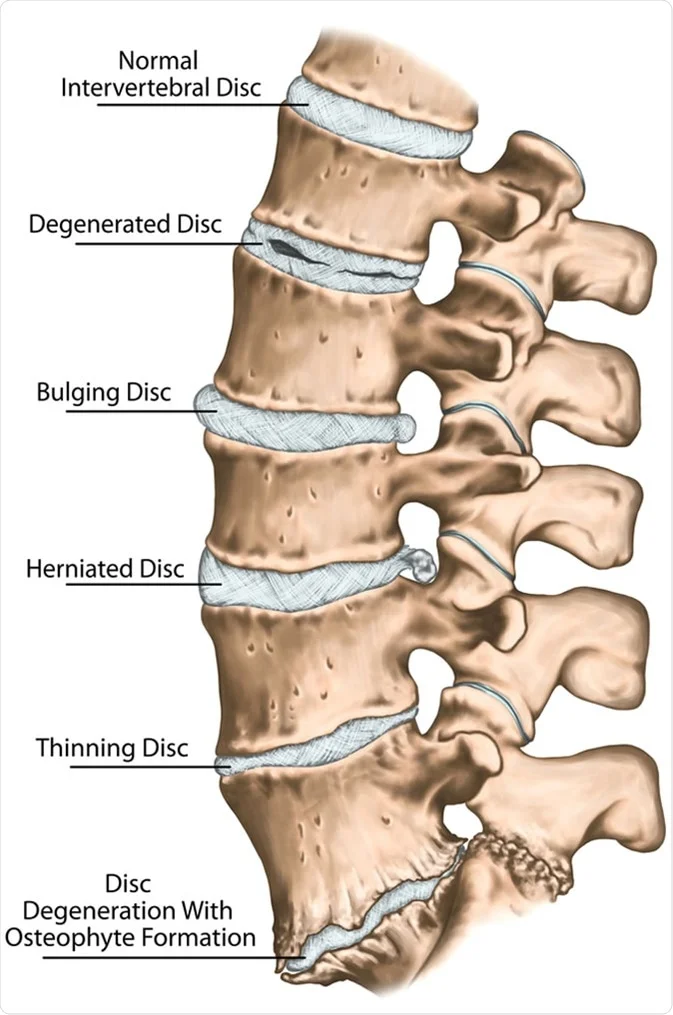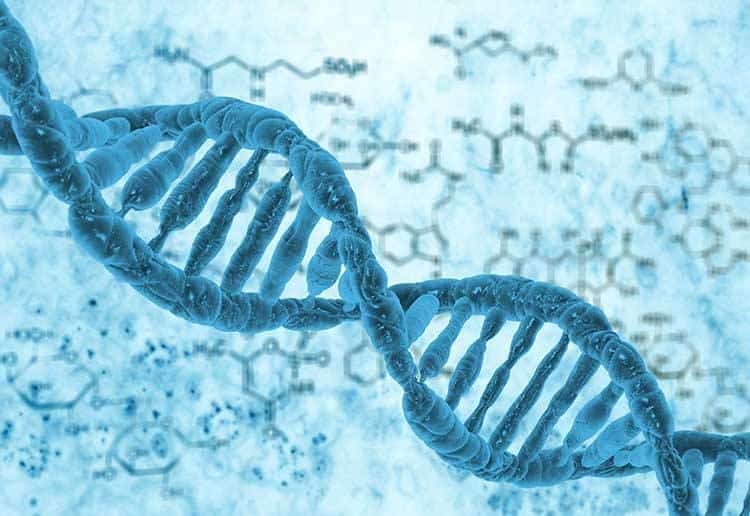Did you know that your spinal discs degenerate over time? Statistcs show that by the age of 35, approximately 30% of people will experience some form of disc degeneration. With the prevalence being so high, you may be wondering, is degenerative disc disease hereditary? While not entirely genetic, genetics can contribute to your susceptibility. The composition of your intervertebral discs can be influenced by your genes—but age, lifestyle, and environmental elements also play a role.
Degenerative disc disease affects your spinal discs, causing pain and reduced mobility. While traditional treatments provide relief, innovative options like stem cell therapy are emerging. This promising technique involves using your body’s cells to stimulate healing, potentially revolutionizing degenerative disc disease management.
Is Degenerative Disc Disease Hereditary?
Whether or not degenerative disc disease has hereditary roots has long intrigued researchers and those affected by this ailment. While its exact causes are complex and multifaceted, genetic predisposition plays a role in its development. Studies suggest that certain genetic factors influence your susceptibility to this disease. These factors can impact the composition and structure of your intervertebral discs—the soft cushions between your vertebrae that facilitate spinal flexibility.
However, degenerative disc disease is not solely dictated by genetics. So, if you’re wondering if degenerative disc disease is hereditary, it can be. Other factors like age, lifestyle choices, occupation, and injuries also contribute to its onset and progression. Aging naturally leads to disc wear and tear, but genetic variations can accelerate this process. Sedentary lifestyles, obesity, smoking, and physically demanding jobs can further make your degenerative disc disease worse.
Living with this disease can be painful, but the good news is that treatment options are available. By addressing genetic predisposition alongside lifestyle factors, you can work towards minimizing the impact of this prevalent condition.

How to Manage Your Degenerative Disc Disease
Living a healthy and fulfilling life with degenerative disc disease requires a holistic approach to healing your body. While this disease can be challenging to live with, there are several strategies you can adopt to manage your symptoms and maintain your overall well-being.
Physical Activity
Engaging in regular, low-impact exercises is crucial. Walking, swimming, and gentle yoga can help maintain flexibility, strengthen supporting muscles, and improve blood circulation to the spine. Building a strong core provides stability to your spine, reducing strain on the discs. Consult a physical therapist to develop a personalized exercise regimen that focuses on core strengthening without aggravating your condition.
Proper Posture
Practicing good posture is essential for reducing strain on your spine. Whether sitting, standing, or lifting, maintaining adequate alignment can alleviate discomfort.
Nutrition and Hydration
A nutrient-rich diet supports overall tissue health and reduces inflammation. Staying well-hydrated helps maintain your discs' shock-absorbing properties.Maintaining a healthy weight is also essential to relieve pressure on your spine. A balanced diet and regular exercise can help you achieve and sustain a healthy weight.
Pain Management
During flare-ups, over-the-counter pain relievers, ice or heat therapy, and relaxation techniques can provide relief. Always consult your doctor before using any pain medication.
Ergonomic Support
Modify your work and home environment to include ergonomic furniture and tools. These adjustments can significantly reduce strain on your back. Also, incorporate gentle stretching routines into your daily routine to maintain joint mobility and reduce muscle tension. Invest in a mattress and pillows that provide proper spinal support while sleeping. Finding a comfortable sleeping position that aligns your spine is essential.
Regular Check-ups
Stay connected with your healthcare provider for routine check-ups. They can monitor your condition's progression and adjust your management plan accordingly. Coping with chronic pain can be emotionally challenging. Seek support from friends, family, or a mental health professional to manage stress and maintain a positive outlook.
By adopting these strategies and customizing them to your specific needs, you can take control of your degenerative disc disease and work towards living a fulfilling life. Remember that each person’s journey is unique, so stay patient and persistent as you navigate this condition’s challenges.
Degenerative disc disease treatments vary based on severity. Conservative options include physical therapy, pain medications, and injections—surgical options like microdiscectomy or spinal fusion address advanced cases. A minimally invasive and more holistic option is stem cell therapy, which holds the potential for disc regeneration and improved disease management.
Get an Appointment
Complete The Form Below And We’ll Get Back To You Immediately.
Stem Cell Therapy for Degenerative Disc Disease
Stem cell therapy is an innovative approach to treating degenerative disc disease. This therapy involves using stem cells, which have the potential to differentiate into various cell types, to promote regeneration of damaged intervertebral discs.
Research shows that stem cells do show promise in helping regenerate damaged discs. A very recent 2023 review study published in Current Stem Cell Research and Therapy concluded that over the last ten years, stem cell-based therapies have been heavily researched for the treatment of disc damage, and promising results have been obtained by various studies.
The idea behind stem cell therapy for degenerative disc disease is to introduce these adaptable cells into your affected disc, where they can stimulate tissue repair and slow down the degenerative process.
If you’re considering stem cell therapy for degenerative disc disease and if you have other questions besides is degenerative disc disease hereditary or not? Get in touch with our medical experts at GIOSTAR Chicago.
Stem Cell Therapy for Degenerative Disc Disease at GIOSTAR Chicago
Discover renewed hope at GIOSTAR Chicago with our cutting-edge stem cell therapy for degenerative disc disease. This is your chance to harness the power of your body to rejuvenate and heal. Embark on a journey towards a pain-free life. Consult our experts to explore the possibilities and take charge of your well-being!
Contact us today by completing this form or calling us at 844 446 7827 to learn more about our regenerative therapies and how they can help you manage your degenerative disc disease.
About GIOSTAR Chicago:
GIOSTAR Chicago is dedicated to developing the most advanced stem cell-based technologies and providing the best regenerative medicine for people who want to enjoy a healthy and active lifestyle.


